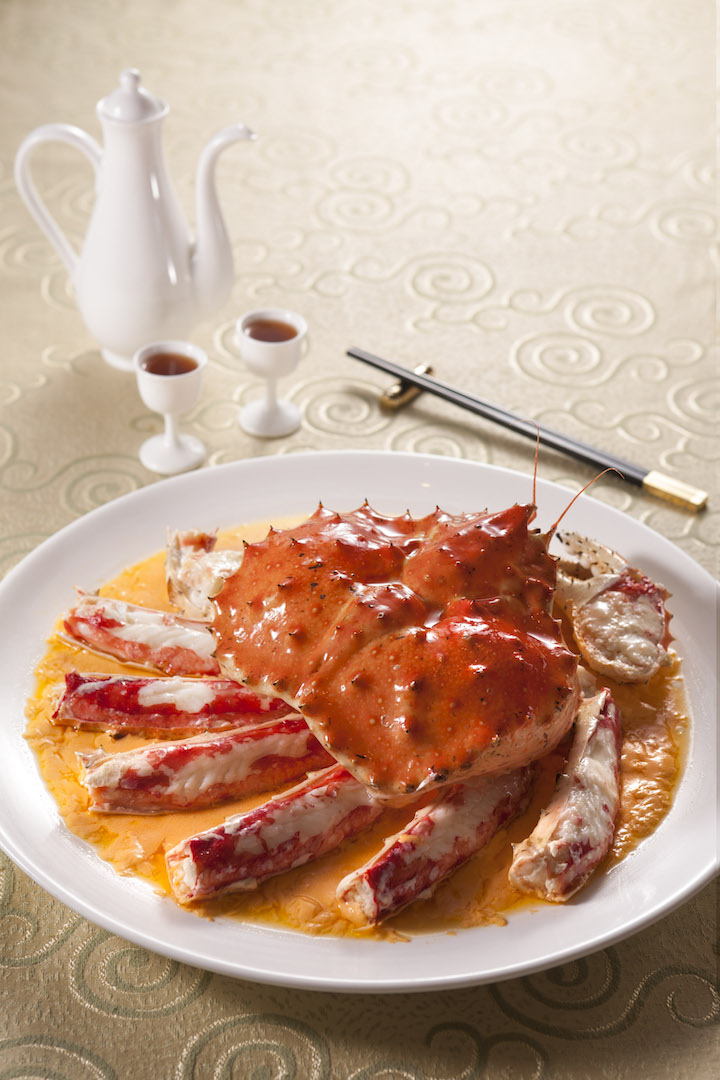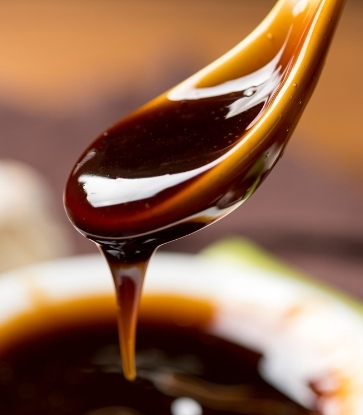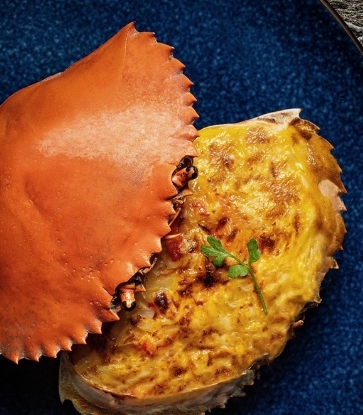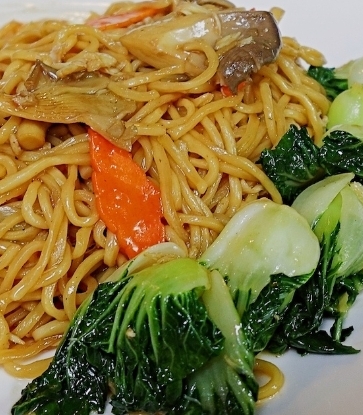Throughout the history of the MICHELIN guide Hong Kong & Macau, there are only a handful of restaurants to be featured in every single edition. In this very exclusive club is Lei Garden. The founder of the restaurant chain, also lovingly known as “Principal Chan”, goes by the motto of “being of greatest benefit to people (“Lei” means "benefit" in Chinese); there’s no best, only better”.
The first Lei Garden was opened in 1973 in Sham Shui Po. Since then, Chan has been pushing its frontiers to Macau, Singapore and Mainland China. There are 23 branches from around the world to date. A lot of hard work was put into the kitchen – hard work that rivals military training at times – but that’s what accounts for generations of culinary talents injected into Hong Kong’s vibrant dining scene.
Even now, at over 80, Chan remains energised as in his younger days and carries on guiding the fresh blood that are making the first step in the industry. Having pursued “health, safety and taste” in food all his life, Chan’s upcoming moves with Lei Garden continue to draw the attention of food lovers.

It’s an immense feat that select Lei Garden branches in Hong Kong have won one star in the MICHELIN guide. Its outlets in Shanghai and Singapore also earned the same status in their respective regions. With the aid of technology, Chan manages to train up his staff from various locations to the high standard of the restaurants.
“All the executive chefs are my protégés – I taught them personally. In the past, the head chefs at the Hong Kong branches would gather for debriefing. Nowadays, I still hold an evaluation meeting every day with the head chefs from China and Singapore through the internet,” he said. Self-assessment has long been a fundamental principle in Chan’s work. He believes deeply that integrity and the will for constant reflection are the essential traits for a successful chef, who would keep advancing himself to another level.
Rather than reporting on the flourishing revenues or other successes at the conference meeting, the chefs are required to bring up the issues that they have to resolve. The think tank format and Chan’s directorship are significant reinforcements to the overseas head chefs. Even though far away from Hong Kong, they are provided with all the weapons from the arsenal of Lei Garden to maintain its quality and character.

In a way, the secret of Chan’s success to develop countless accomplished chefs, is the lack of secrets. Unlike the Chinese chefs from the previous era, who taught their apprentices practically nothing except for allowing them to glimpse from the sideline, Chan never held back from sharing his knowledge and experience. Back from the early days of Lei Garden, Chan had taken this measure to full swing, firing the employees who weren’t willing to learn or make things right. After nine generations of cooks and ten generations of restaurant managers, he is left with staff who are receptive to constructive criticism.
Here’s the deal: as long as you follow the guidance of Chan, anyone can come into his own. Like those teachers you would find changing your life at school, Chan teaches his protégés by first understanding where the problem lies. He would then demonstrate how to overcome it and track their progress. “I only need three days to teach an apprentice,” he exclaimed.

Chan often mentions in interviews that to benefit others is to benefit oneself. This is why he named his business using the word “Lei”. This philosophy still holds dear to his heart. One on hand, he set up charity funds and donated the shares of his group there. On the other hand, he goes back to the basics at the restaurant, vigorously exercising his belief of “safety, health and taste”. He is an avid advocate for a food that offers more than just tantalising flavours.
“Just as the MICHELIN guide establishes the three stars as the highest standard of dining, safety, health and taste are the three things we value the most. We are trying to make our colleagues and the younger generation aware of and work towards these goals, in order to create a better world,” he said.

Because of that, Lei Garden has been building a farm-to-table system in recent years to ensure a sufficient supply of quality ingredients at its restaurants. It put an eco-farm was in place ten years ago in Zhanjiang, China, feeding pigs and chickens with feeds advantageous to their health, and cultivating fruits and vegetables with organic fertilisers. The farm provides for the branches in Mainland China. Another farm is also under construction to cover the demands of other Lei Garden destinations. In addition, one more farm is in the plans. It will be located in New Zealand, where the safety level of food is under strict control.

Being a high-end Chinese restaurant, Lei Garden has a rather limited customer reach, which in turn weakens the impact of its campaign to change the landscape of the food world. But Chan has plans of his own. In the future, Lei Garden will put its focus on Chinese-style fast food and bistro.
Lei Bistro has newly entered the market, and while the fast food concept is still in development, Chan is determined to apply the same rules of “safety, health and taste” to reverse the common perception that it is something unhealthy and flavourless. Besides opening new farms, he is going to work closely with international scientific development and authentication bodies to come up with automated, standardised production lines in food packaging and fast food. As he pointed out, even such production models rely heavily on machinery, the staff members still have a role to play. When everyone is put at the right position, the company would reach its maximum effect.





















